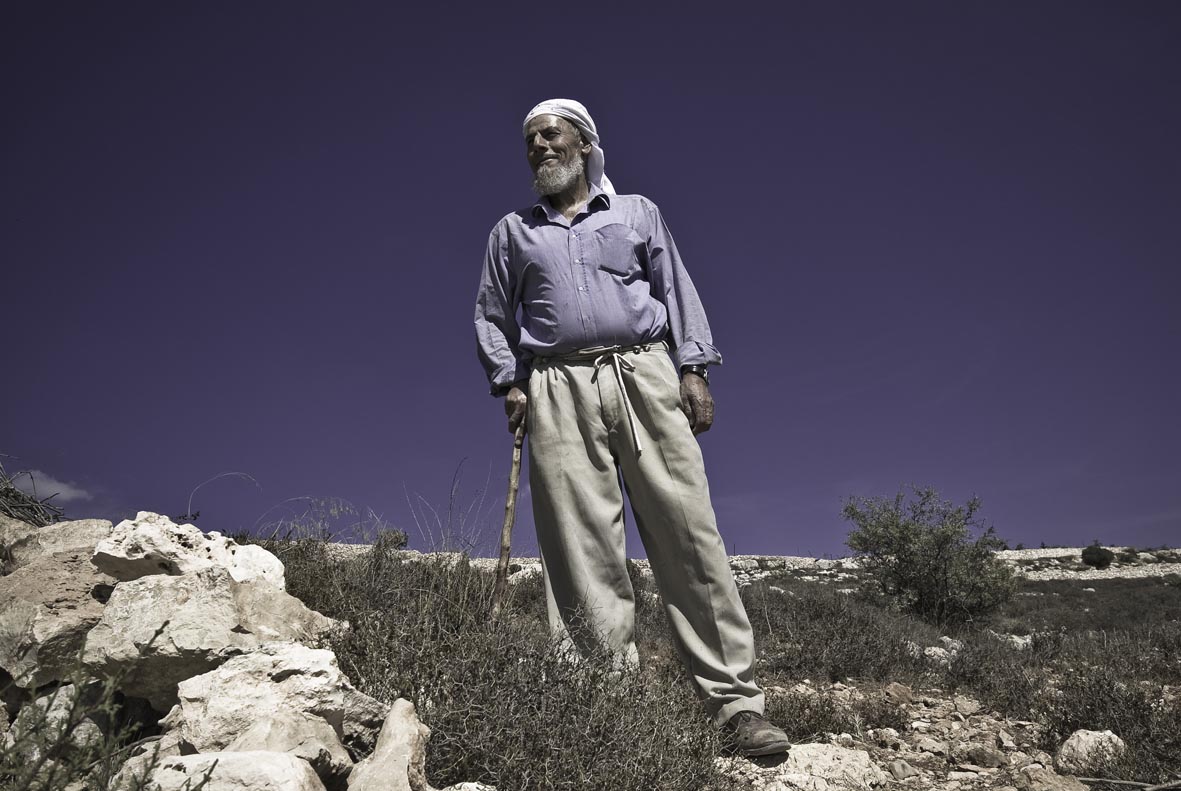
Abu Zakariya is from Al Khader, a formerly and predominantly agricultural area at the centre of Bethlehem district that stands to lose the vast majority of its farmland if construction of the separation wall continues unheeded. Since the construction of the wall on the hill tops behind the residential part of the town, Abu Zakiriya’s journey to the family farmland has been at least doubled. The 2km detour he makes with his donkey takes him out and around the town, through an Israeli military ‘flying checkpoint’ and then down the hard shoulder of a busy dual carriageway – the Jerusalem, Hebron route 60 – a now infamous settler Bethlehem bypass road used by settlers to access not just Heron but a number of large Israeli West Bank settlements. There are no facilities or facilitations for farmers on this road. After walking down the dangerous hard shoulder for more than 1km farmers must then cross the busy dual carriage way unaided.
Abu Zakariya’s family land is a relatively large, 50 dunums (5 hectares), consisting predominantly of ecologically important ‘marquis’ scrub and trees including oak, blackthorn, pistachio, carob, as well as a number of cultivated fruit varieties. For most part however, due to older age and the little help Abu Zakariya receives, he is only able to farm perhaps just one dunum of this land, upon which he has a number of new fruit trees and grape vines, as well as older olive trees. Certainly the most significant factor contributing to the demise of Palestinian farmland in general is the issue of access. While Israel may negate claims that it is stopping Palestinian farmers from using their land, especially in areas that Israel considers of strategic importance, it is certainly hindering farmers to such an extent that to farm this land viably is becoming increasingly difficult as well as far from an enjoyable experience. When the hard work that goes into this land gives very little return it is easy to understand how family land is slowly being given up in favour of more profitable business. The younger generations are of course in need of higher wages, especially in consideration of the cost to support the large families that Muslims tend to have in this region. If Palestinians want to hold onto this land, however, huge steps must be taken to help farmers like Abu Zakariya. When land such as his sits untended for more than three years Israel has given itself the power to confiscate it as ‘state land’, declare it militarily closed, and ultimately at a later date ‘develop’ upon it. If money could be raised to repair farm tracks and allow ease of access for larger trucks at harvest time, to transport farmers themselves to their land, to build rainwater storage cisterns, this land can be saved and a viable healthy living made from it.
If anybody is interested in working as a volunteer with farmers such as Abu Zakariya, please contact us.
Read more!

